
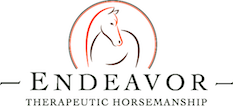
Endeavor Therapeutic Horsemanship, Inc.
556 Croton Lake Road
MOUNT KISCO, NY 10549
Mailing Address:
556 Croton Lake Road
MOUNT KISCO, NY 10549
Phone: 914-241-0211
MAKE AN INQUIRY
View our WEBSITE
EIN: 47-2323887Founded: 2014
View our PHOTO GALLERY
Profile Last Updated December 29, 2025Public Charity
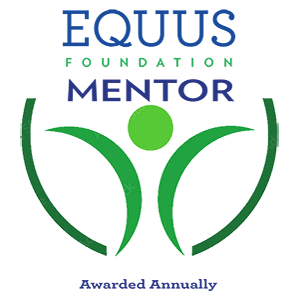
The Mentor Accreditation is awarded annually to an organization that operates at the highest standards for business and equine welfare practices in accordance with EQUUS Foundation guidelines for business and equine welfare practices outlined here.
Last Updated: June 16, 2025

MISSION & PROGRAMS
Mission:Endeavor Therapeutic Horsemanship Inc.’s mission is to empower individuals with a broad range of needs by providing the highest quality equine-assisted services in an inclusive and welcoming environment.
Our organization conducts Equine Assisted Services in accordance with the EQUUS Foundation Guidelines on Qualifications of Organizations Conducting Equine Assisted Services (EAS).
Our organization provides outreach and/or public education programs involving horses.
100% of our total programs and services are equine-related.
Our organization is directly responsible for the care and shelter of equines involved in our programs.
Our organization does not CURRENTLY use satellite, overflow, foster, and/or outreach facilities.
Please describe what steps your organization takes to ensure that:
1) all interactions between your equines and people are mutually beneficial and conducted in accordance with the Guidelines for Human-Equine Interactions stated below;
2) all equines in the care of our organization and/or equines that participate in the organization's program have access to clean drinking water at all times; nutritious food in sufficient quantity, including natural forage such as pasture grass and/or hay; appropriate veterinary, farrier, and dental care; shelter and protection from the weather; sufficient safe space to move around comfortably on a daily basis; and daily opportunity to freely interact and have contact with other equines:
Endeavor Therapeutic Horsemanship takes the health and wellbeing of our equine partners extraordinarily seriously. As an accredited EQUUS Foundation Mentor and Guardian Center, we strictly adhere to the EQUUS Guidelines for Human-Equine Interactions.
Endeavor has a written policy in place to keep our herd physically and mentally healthy. This policy limits horses to a maximum of two lessons per day and no more than ten lessons per week, including both ground lessons and mounted lessons, and our Equine Director and Equine Manager keep track of these lessons weekly. As part of the policy, all of our programs and activities that involve both humans and horses must have a Path Intl. certified Equine Specialist (ES) present to ensure the safety and respect of the equine. Before lessons, horses are monitored by an ES or a Certified Therapeutic Riding Instructor (CTRI) to make sure each horse is willing and able to participate in programming.
Endeavor policy also contains guidelines for how horses are selected for programming based on temperament and physical ability. As another part of our policy, Therapeutic Riding sessions are always taught by a Path Intl. Certified Therapeutic Riding Instructor (CTRI), trained in both equine behavior and wellbeing and human first aid. A first aid plan is in place for both horses and humans in the event of an unforeseen emergency.
Endeavor Equine Care Standard
All equines have continuous and unrestricted access to water through troughs in their paddocks and two buckets in their stalls. In the winter these troughs are heated to ensure drinkable water year round. Our herd receives both grain and soaked hay, and, if deemed appropriate by a veterinarian, some of our horses have access to pasture grass. The feed our horses receive is monitored by our veterinarian, Equine Director, and Equine Manager to ensure the highest quality of nutritional health.
All of the horses are visited by the ferrier, veterinarian, and dentist on a regular basis, and as needed. The Endeavor herd is also seen by an equine massage therapist, chiropractor, and saddle fitter regularly.
The Endeavor herd lives outside in large paddocks and each horse has access to run in sheds whenever they need. If the weather is deemed too inclement, the horses each have their own stall inside our barn and will be brought in for their protection. Our herd generally live in pairs and paddocks are situated so that they can safely interact with each other, and their fellow herd members.
Equine Assisted Services (EAS) Overview:
Overview of our programs involved with providing EAS to individuals with special needs:
Endeavor provides a spectrum of integrated programs, serving the evolving needs of participants and their families, including recreational sport, clinical services, and programs focused on growth and learning. Endeavor provides a wide scope of fun filled activities and empowering experiences to participants of all ages and their families.
At-Risk Youth Horsemanship
Endeavor partners with local residential facilities to support the efforts for positive youth development to the areas most vulnerable young men and women due a variety of factors including poverty, racism, mental health diagnosis, and histories of trauma.
Staff at our partnering agencies report measurable and marked progress in emotion management, ability to self-soothe, positive response to change, and increased levels of engagement.
Equine Assisted Learning
Endeavor partners with local schools or school districts to offer programs in the sensory rich environment of the farm. Endeavor instructors partner with the teachers to create lessons plans that compliment the learning objectives in the classroom.
Therapeutic Horsemanship
Therapeutic horseback riding and ground horsemanship are recreational and sport-based activities that naturally complement one another. The program teaches both riding and unmounted horse skills to children and adults.
Participants are able to learn riding skills in a safe and judgement free environment that is empowering and fun. These skills include mounting and dismounting, steering, transitions, posting, half seat, diagonals, ring figures, leg yields, and jumping.
On the ground, the participant is able to tend to their horse and experience a stronger bond than riding alone. This includes but is not limited to horse anatomy, grooming, first aid and healthcare, feeding and watering, leading and lunging, and horse breeds and colors and history.
Endeavor can accommodate participants of varying levels and always focus on the ability and setting goals that continue to challenge and inspire.
Some of the therapeutic benefits that we typically observer include physical improvements like increase in core strength and fine motor skills; cognitive improvements like increase in ability to perform multi-step directions; emotional improvements like the increase ability in self-regulation, and social skills for example increase in confidence to communicate with peers.
Veteran and Active Duty Military
Veterans learn how to care for the horses, develop riding skills & address and strength their mental health through equine assisted psychotherapy. Programs are offered on a weekly schedule or a one day special event. Endeavor also offers weekend retreats and veteran family day events. All veteran programs are offered free of charge.
Clinical Services
Endeavor works with clinical specialists to offer equine assisted psychotherapy.
Equine Assisted Psychotherapy is an experiential process in which a licensed mental health professional works with equines to address personal therapy goals set forth by the mental health professional and the client.
Prison Program
Endeavor partners with two local correctional facilities to provide equine assisted services for the incarcerated female population.
Equine Assisted Services (EAS) and Providers:
Our organization provides the following Equine Assisted Services (EAS):
Adaptive/Therapeutic Riding
Adaptive/Therapeutic Unmounted Horsemanship
Psychotherapy/Counseling
Equine-assisted Learning in Education
9: Total number of Equine Assisted Service Providers at Endeavor Therapeutic Horsemanship
1 Barbara Carbone, MA, LCSW
FACILITY PARTICIPATION:
Endeavor Therapeutic Horsemanship
RELATIONSHIP: Independent Contractor
SERVICES PROVIDED:
Psychotherapy/Counseling
DEGREES, LICENSES AND/OR CERTIFICATIONS
Licensed Clinical Social Worker, EAGALA Certified Mental Health Specialist and Military Designated Provider, Certified Military Clinical Counselor
2 Courtney Penachio
FACILITY PARTICIPATION:
Endeavor Therapeutic Horsemanship
RELATIONSHIP: Employee
SERVICES PROVIDED:
Adaptive/Therapeutic Riding
Adaptive/Therapeutic Unmounted Horsemanship
DEGREES, LICENSES AND/OR CERTIFICATIONS
PATH CTRI
PATH ESMHL
3 Emily Wygod Bushnell
FACILITY PARTICIPATION:
Endeavor Therapeutic Horsemanship
RELATIONSHIP: Volunteer
SERVICES PROVIDED:
Adaptive/Therapeutic Riding
Adaptive/Therapeutic Unmounted Horsemanship
Equine-assisted Learning in Education
DEGREES, LICENSES AND/OR CERTIFICATIONS
PATH Intl Advanced Riding Instructor
PATH Intl Mentor
PATH Intl Evaluator
Special Olympics Riding Coach
Masters Secondary Education
4 Jennifer Heffer
FACILITY PARTICIPATION:
Endeavor Therapeutic Horsemanship
RELATIONSHIP: Employee
SERVICES PROVIDED:
Equine-assisted Learning in Education
DEGREES, LICENSES AND/OR CERTIFICATIONS
Masters in Education
PATH Registered Equine Specialist in Mental Health and Learning
5 Laurie Ciavardini, LCSW-R
FACILITY PARTICIPATION:
Endeavor Therapeutic Horsemanship
RELATIONSHIP: Independent Contractor
SERVICES PROVIDED:
Psychotherapy/Counseling
DEGREES, LICENSES AND/OR CERTIFICATIONS
EAGALA Equine Specialist; Military Designation
EAGALA Mental Health Worker; Military Designation
Licensed Clinical Social Worker
6 Lisa Maksimyadis
FACILITY PARTICIPATION:
Endeavor Therapeutic Horsemanship
RELATIONSHIP: Employee
SERVICES PROVIDED:
Psychotherapy/Counseling
DEGREES, LICENSES AND/OR CERTIFICATIONS
MS Special Education
MS Clinical Psychology
Adv.Cert. Mental Health Counseling
PATH Intl ESMHL
7 Margaret Hall
FACILITY PARTICIPATION:
Endeavor Therapeutic Horsemanship
RELATIONSHIP: Employee
SERVICES PROVIDED:
Adaptive/Therapeutic Riding
Adaptive/Therapeutic Unmounted Horsemanship
DEGREES, LICENSES AND/OR CERTIFICATIONS
PATH Intl Registered Instructor
8 Sarah Jane Casey
FACILITY PARTICIPATION:
Endeavor Therapeutic Horsemanship
RELATIONSHIP: Employee
SERVICES PROVIDED:
Adaptive/Therapeutic Riding
Adaptive/Therapeutic Unmounted Horsemanship
DEGREES, LICENSES AND/OR CERTIFICATIONS
PATH Intl Advanced Instructor, EAGALA Equine Specialist
9 Tamlyn Nathanson
FACILITY PARTICIPATION:
Endeavor Therapeutic Horsemanship
RELATIONSHIP: Employee
SERVICES PROVIDED:
Adaptive/Therapeutic Riding
Adaptive/Therapeutic Unmounted Horsemanship
DEGREES, LICENSES AND/OR CERTIFICATIONS
PATH Intl Registered Instructor
Outreach and/or Public Education:
Our tours, volunteer opportunities, and special events welcome local community members to come to the farm to learn about equine assisted services, partnering with equines, and how horses work in our programs.
Research/Medical Use of Equines:
Our organization has made equines available for research studies or medical training.
Please explain where and for what purpose equines are/were provided to use in research or medical training.
Veterinarian will use horse at farm for intern/vet tech training, only for doing procedures that the horse needs done already. The horse receives that procedure for free in exchange. The veterinarian has also worked with our horses for cardiac research on property, where horses were only asked to do their normal training routine with a heart monitor on them.
Religious Affiliation:
Our organization does not promote religious education, religious purposes, or a specific religious faith or use donations for religious education or religious purposes; require participants to be of a certain faith; require participation in religious, instruction, activities or services; or require participation in prayer, worship, religious instruction or other religious activities as a condition of receiving social or secular services offered.
Auction Donation:
Our organization has never allowed, or would not consider allowing, an equine to be sold, transferred, released, or otherwise placed into possession of any person or organization that would cause or allow the equine to be sold at auction for slaughter.
POLICIES: INTAKE, ASSESSMENT & TRAINING
Prior to a horse being accepted and/or arriving at the facility, the organization has the following policies in place:The owner of a potential equine is interviewed over the phone or in person prior to seeing the equine
The equine is evaluated at its place of residence
The owner completes an application/contract which constitutes the agreement between the owner and our organization when the equine is acquired from the equine's owner other than by seizure or by abandonment
If health records are not available or are out-of-date, our veterinarian will administer appropriate vaccinations
The owner is financially responsible for the shipping of the equine to and from the organization
A health certificate signed by a veterinarian and dated no more than seven days prior to arrival is provided to our organization either prior to or upon arrival of the equine attesting to the health status of the equine
Trial Period: Check all that apply:
Equines are on trial up to 60 days
The trial period may be reduced based on the equine's progress
During the trial period, the organization accepts total financial responsibility for the care of the equine, including board, feed, shoeing and any necessary veterinary care
During the trial period, the organization accepts financial responsibility for the care of the equine, including board, feed, shoeing and any necessary veterinary care, up to a fixed amount agreed upon by the organization and the owner
The trial period may be terminated by either the organization or the owner for any reason
Equines are on trial for up to 30 days
Equines are on trial for 60 or more days
During the trial period, the owner/donor is financially responsible for the care of the equine, including board, feed, shoeing and any necessary veterinary care
Upon intake, the organization has the following quarantine policy in place:
The equine is confined to a designated and separate area for isolation and quarantine at the facility for a prescribed period of time
The equine is confined to a designated and separate area for isolation and quarantine off-site for a prescribed period of time
The equine is not quarantined
The typical length of quarantine is: Up to 10 days
Following arrival of the equine at the facility, the following is performed:
Physical examination to include temperature, pulse and respiration by a veterinarian upon arrival
Physical examination to include temperature, pulse and respiration by a trained staff member upon arrival
A Henneke Body Conditioning Score or other body conditioning score is assigned by a veterinarian upon arrival
Photographs are taken of each equine upon arrival at the facility and kept with the equine's health records
Physical examination by a farrier
A Henneke Body Conditioning Score or other body conditioning score is assigned by a trained staff member upon arrival
Physical examination by a dentist
The equine is microchipped if the equine has not been microchipped
Horses are assessed for following skills and behaviors:
Retrieval from a pasture/paddock
Leading with a halter and lead rope
Temperament, disposition and attitude, such as rated from very calm to very high spirited
Saddling
Bridling
Lunging
Loading onto and unloading off a trailer
Mounting and dismounting
Riding at the walk
Riding at the trot
Riding at the canter
Riding by a beginner and/or unbalanced rider
Jumping
Tolerance to unusual objects and loud noises
Known vices, i.e., cribbing, biting, kicking, weaving, stall walking, etc
Grooming
Bathing
Clipping
Tolerance to multiple handlers at the same time
Driving (Pulling a carriage)
Our organization has the following policies and procedures in place pertaining to the ongoing assessment of horses in its care:
Physical examination by a veterinarian at least annually
The Henneke Body Condition score or other body conditioning score is updated at least annually by the veterinarian
Vaccinations are administered at least annually
Photographs are taken of each equine annually and kept with the equine's health records
Equines at our facility may be treated by an equine chiropractor
Equines at our facility may be treated by an equine acupuncturist
Equines at our facility may be treated by an equine massage therapist
Equines at our facility may be treated by an equine nutritionist
The Henneke Body Condition score or other body conditioning score is updated at least annually by a trained staff member
Photographs are taken of each equine monthly and kept with the equine's health records
Our organization has the following policies and procedures in place pertaining to the weight-carrying or workload capabilities of horses/equines that are ridden in our care:
Our organization evaluates the weight-carrying and workload limitations for each equine that is ridden at least annually
Our organization maintains a written record of the weight-carrying and workload limitations for each equine that is ridden
Our organization does not evaluate the weight-carrying and workload limitations for each equine that is ridden
No equines are ridden; not applicable
The following variables are considered in determining the weight-carrying and workload limitations for each equine that is ridden:
Equine age, weight, breed, body condition, fitness, balance, health and soundness
Equine conformation to include the top line, length of back, strength and width of loin, bone density (measured by the circumference of the cannon bone just below the knee)
Size, shape, condition and angle of the hooves
Participant weight, height, body proportions, balance, fitness and riding skills as well as behavioral issues and safety concerns
Weight and proper fit of the saddle and other equipment
Terrain and footing in the working environment
Duration and frequency of working sessions, as the frequency with which an equine is subjected to maximum weight carrying and/or workload
Nature and pace of work, repetitive or varied, radius of turns, degree of incline and regularity of footing when equine is subject to maximum weight-carrying capacity
Temperature and/or weather conditions
Seasonal impact on the equines' workload and weight-carrying capabilities and limitations
Our organization does not evaluate the weight-carrying and workload limitations for each equine that is ridden
No equines are ridden; not applicable
Horses provided formal training (groundwork or riding): 2-3 times per week
POLICIES: BREEDING
The organization has the following policies related to breeding and stallions:Our organization does not conduct breeding of equines owned or under the care of our organization.
The main facility where our organization conducts its programs does NOT breed equines.
One or more of the facilities where our organization conducts its programs, including foster/temporary care facilities, breeds equines
One or more of the facilities where our organization conducts its programs, including foster/temporary care facilities, are permitted to house stallions
POLICIES: EUTHANASIA
The organization has the following policies related to euthanasia:Our organization will never have an equine euthanized for space
Our organization will have an equine euthanized upon the recommendation of the veterinarian if the equine is a threat to itself, other equines, or people
Our organization will have an equine euthanized upon the recommendation of the veterinarian after all reasonable treatment options have been explored
Euthanasia is done on site when possible to decrease trauma from transport
Disposal of the carcass is handled within 24 hours
Our organization will never have an equine euthanized under any circumstances
Euthanasia is done at the veterinarian's facility
The following are authorized to administer the procedure for your organization in accordance with state laws:
Veterinarian
A certified euthanasia technician
Senior staff with appropriate training
Employee of animal control shelter or humane society with appropriate training
Veterinary student under the supervision of a licensed veterinarian
Not applicable. Our organization prohibits euthanasia under any circumstances
POLICIES: RE-HOMING
View Re-homing AgreementOur organization has the following re-homing (adoption/purchase) policies and procedures in place:
All potential adopters/purchasers complete a written contract which constitutes the agreement between our organization and the new owner
Our organization will only re-home an equine to a location where another equine resides
Potential adopters/purchasers must visit our organization and be observed with the equine on site
The distance of a potential adopter/purchaser's home from our facility is a consideration for when re-homing an equine
Our organization conducts a site visit of the adopter/purchaser's facility before the transfer of the equine to the adopter/purchaser's facility
Our organization does NOT re-home an equine to first time equine owners
Potential adopters/purchasers are encouraged to do a short-term, on-site foster with the equine
Adopters/purchasers are NOT required to provide updates
Our organization has the following policies and procedures related to horses that need to be retired, are no longer able to contribute to the mission of the organization, and/or are no longer manageable:
Equines may remain at our organization for their lifetimes
Equines may be found suitable homes by our organization
Equines may be returned to their owners
In the case an equine is unmanageable and demonstrates repeated dangerous behaviors, the equine may be euthanized upon the recommendation of the veterinarian
In the case an equine is unsound and/or unhealthy and cannot be treated to relieve suffering, the equine may be euthanized upon the recommendation of the veterinarian
The organization will accept financial responsibility for equines in the current care of the organization that need to be retired or are no longer able to contribute to the mission of the organization if all alternatives have been explored to find the equine an appropriate placement and space is not available for the equine to remain at the organization.
Equines may be sent to auction
If a suitable home cannot be located within 12 months, the equine may be euthanized
The uploaded Re-homing agreement includes the following re-homing (adoption/purchase) statements:
The agreement reflects that any individual or organization in possession of the equine as of the date of the agreement and any time thereafter is bound to not sell the equine at auction for slaughter or allow the equine to be sold, transferred, released, or otherwise placed into possession of any person or organization that will cause or allow the equine to be sold at auction for slaughter.
The agreement states that should the adopter decide to re-home the equine, our organization must be notified of the name, address, and telephone number of any individual or organization intending to take possession of the equine for any reason prior to the equine being placed into the possession of such individual or organization.
The agreement states that our organization reserves the right to make scheduled visits
The agreement states that adopters/purchasers can return an equine to our organization free of charge
The agreement states that adopters/purchasers are required to provide updates (photos, vet records) for as long as the adopter/purchaser is responsible for the care of the equine
The agreement states that the re-homed equine CANNOT be sold, adopted, transferred, auctioned, released, given away, or otherwise placed into the possession of another individual or organization under any circumstances and must be returned to our organization should the adopter decide that he/she is no longer able, or no longer wishes, to care for the equine.
The agreement states that should the adopter decide to re-home the equine, the adopter must grant the organization first right of refusal prior to the equine being placed into the possession of any individual or organization intending to take possession of the equine for any reason.
The agreement states that should the adopter decide to re-home the equine, our organization must grant approval of any individual or organization intending to take possession of the equine for any reason prior to the equine being placed into the possession of such individual or organization, including being provided written notification of the name, address, and telephone number of any individual or organization intending to take possession of the equine for any reason.
The agreement states that the terms of our organization's agreement will be binding on any future individual or organization taking and/or in possession of the equine for any reason.
The agreement states that re-homed equines cannot be bred
The agreement states that if there is any breach of contract the equine must be returned to our organization
The agreement states that our organization reserves the right to make unannounced visits
The agreement states that adopters/purchasers can return an equine to our organization for a fee
The agreement states that adopters/purchasers are required to provide updates (photos, vet records) for one year
The agreement states that adopters/purchasers are required to provide updates (photos, vet records) for two years
Our organization microchips all equines that are not already microchipped before the adoption and/or transfer of the equine if the organization has the authority to microchip the equine.
The agreement includes the microchip number of the equine.
None of the statements are included.
The organization does not re-home equines under any circumstances; our organization retains custody of our equines and ensures care of the equines for their lifetimes.
Our organization does not have the authority to transfer ownership and/or does not own any of the equines involved with our programs.
Our organization requires references from the following:
Veterinarian
Farrier
Personal/Other
Not applicable or no references required.
Transfer of ownership occurs: Immediately (at the time of adoption/purchase) or less than one year
The average equine re-homing (adoption/purchase) fee received by your organization:
None received
Additional information about our rehoming policies and practices:
We have not re-homed any horses to date for a fee. We find our horses loving homes through our personal networks when they are ready to be retired from work at Endeavor.
EQUINE CARE & SHELTER/FACILITY INFORMATION
Our organization does not CURRENTLY use satellite, overflow, foster, and/or outreach facilities.Total facilities at which our organization cares for and shelters horses used in our programs: 1
Endeavor Therapeutic Horsemanship
556 Croton Lake Road Mount Kisco NY 10549
Currently operational
Total number of horses/equines currently involved with your programs, under your care, and/or owned by your organization at this facility: 13
Total number of horses at this facility NOT INCLUDING those counted above: 0
Maximum capacity of horses at this facility: 20
Does your organization own, lease or use a part of this facility? Lease
Provide the contact information for the individual or organization responsible for investigating abuse in the county where the facility is located, including mailing address, email address, and phone information.
Animal Control 307 Bedford Road Bedford NY dogcontrol@bedfordny.gov 914.666.4855 SPCA of Westchester, Inc. 590 North State Road, Briarcliff Manor, NY 10510 info@spca914.org (914) 941-7797
Does your organization conduct Equine Assisted Services (EAS) at this facility in accordance with the EQUUS Foundation Guidelines on Qualifications of Organizations Conducting Equine Assisted Services (EAS)? Yes
Total number of Equine Assisted Service Providers AT THIS FACILITY, including instructors, specialists, therapists, counselors, coaches and/or facilitators (full-time, part-time, volunteer, independent contractors, and/or providers accompanying clients) that conduct Equine Assisted Services (EAS) in accordance with the EQUUS Foundation Guidelines on Qualifications of Organizations Conducting Equine Assisted Services (EAS) AT THIS FACILITY: 9
Equine Assisted Service Providers Assigned to this Facility: (see Equine Assisted Service Provider Section below for details)
1. Barbara Carbone, MA, LCSW
2. Courtney Penachio
3. Emily Wygod Bushnell
4. Jennifer Heffer
5. Laurie Ciavardini, LCSW-R
6. Lisa Maksimyadis
7. Margaret Hall
8. Sarah Jane Casey
9. Tamlyn Nathanson
Veterinarian Information: Endeavor Therapeutic Horsemanship (*Main) Currently operational
Veterinarian: Laura Faulkner
Clinic Name: Watermark Equine
79 Danbury Rd
Ridgefield CT 06877
Phone: 914-401-8224
Grounds: Endeavor Therapeutic Horsemanship (*Main) Currently operational
Total acreage dedicated specifically to the horses: 14
Our organization has use of the following at this facility:
Structures/Barns: 3 Run-in sheds: 5
Pastures: 8 Paddocks/Pens/Turnout Areas: 0
Uncovered Outdoor Rings: 1 Covered Outdoor Rings: 0 Indoor Rings: 1
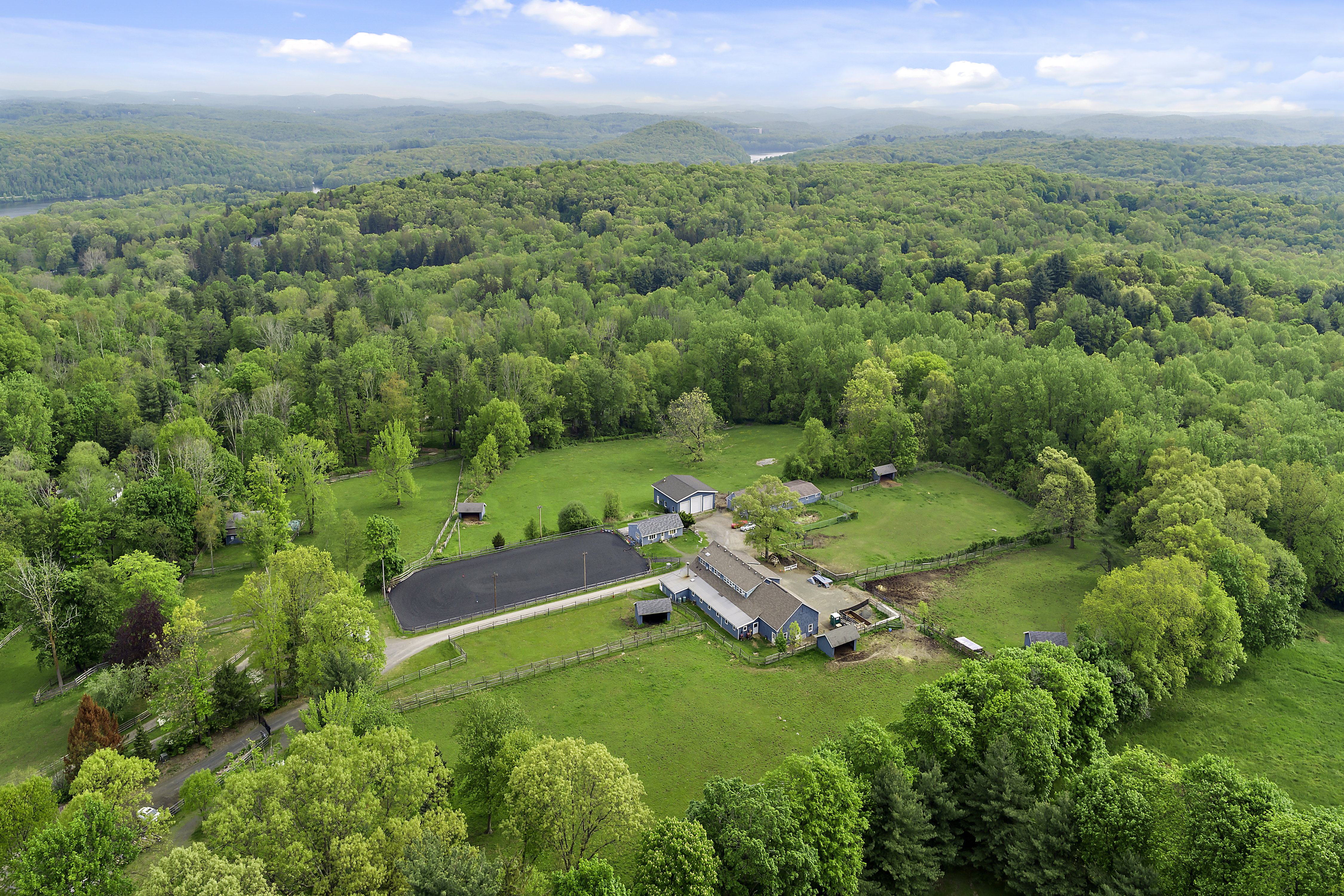
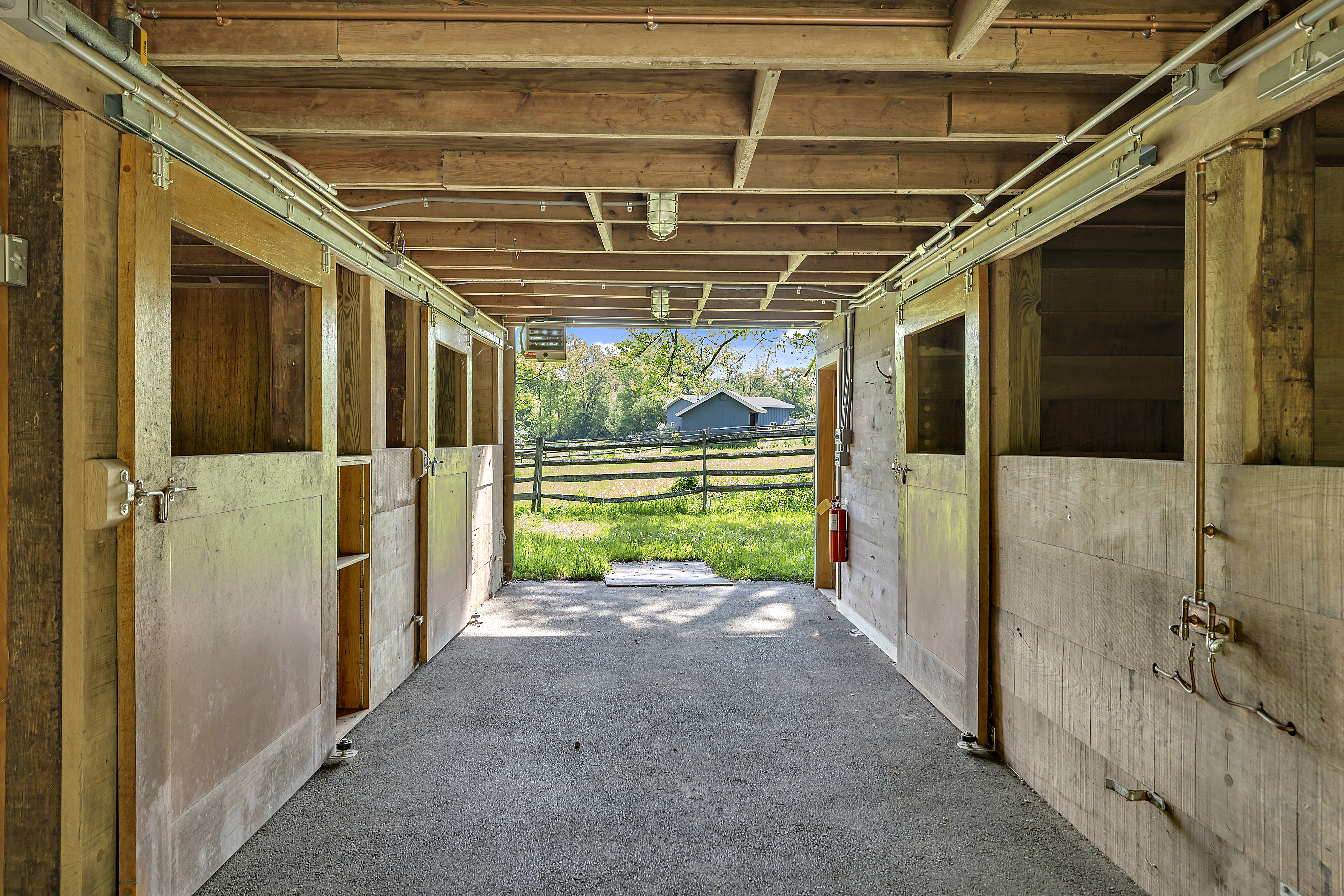
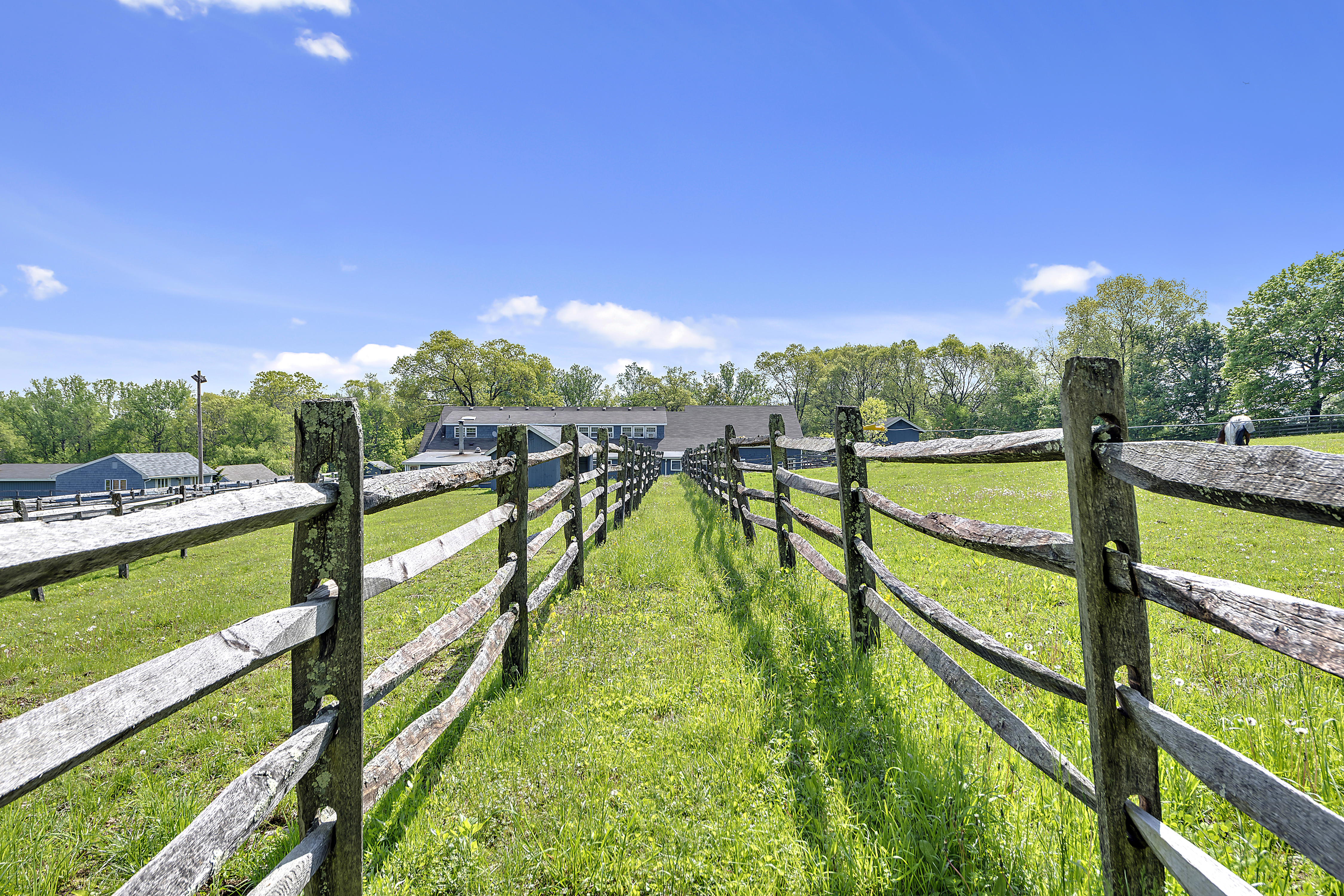
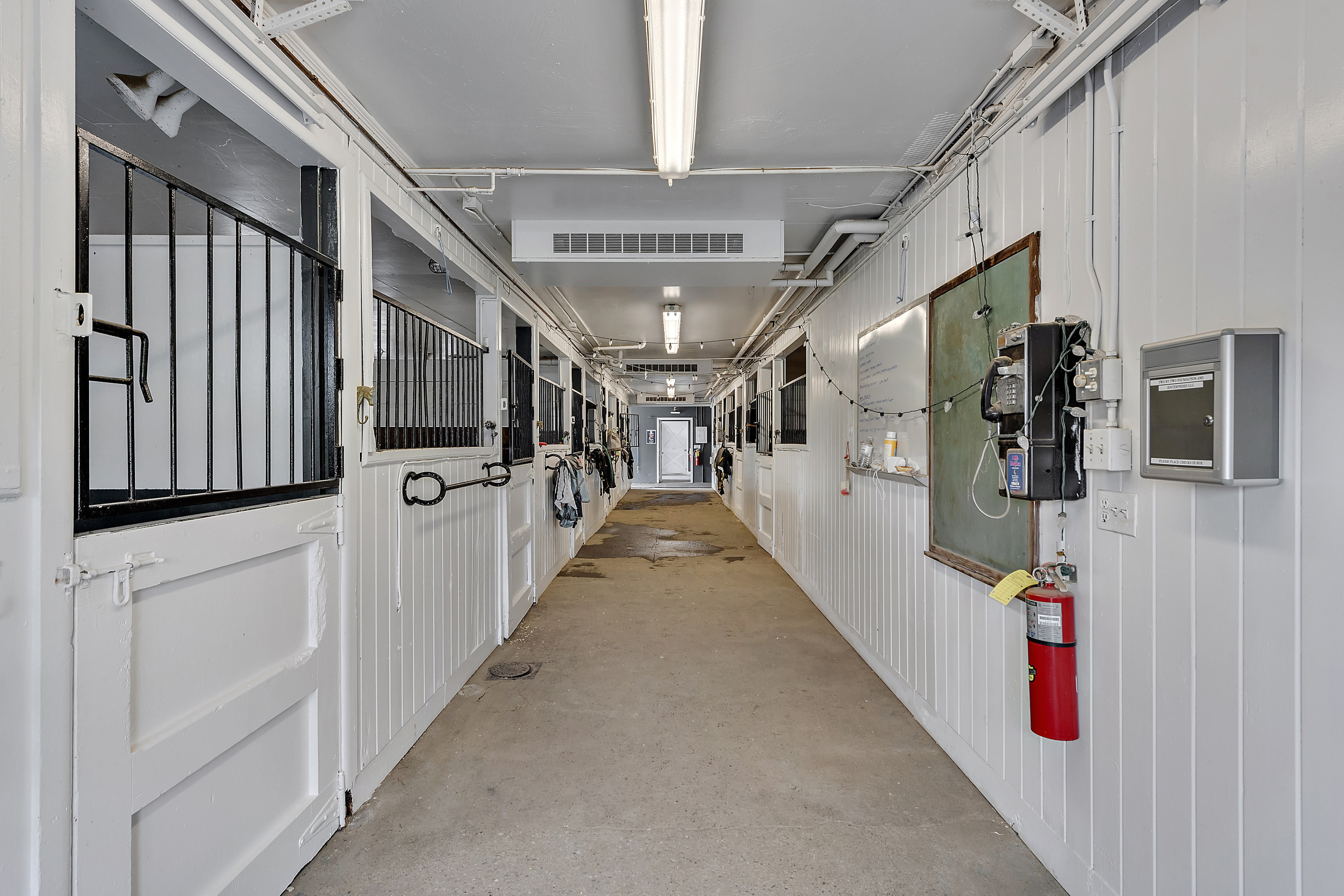



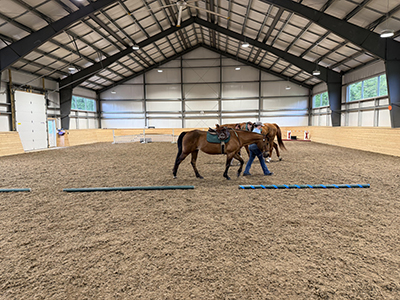
Are the organization's rules, restrictions and warnings (signage) conspicuously posted in easily accessible locations? Yes
Are the organization's emergency contacts, including veterinarian contact information, conspicuously posted in easily accessible locations? Yes
Are human and equine first aid kits easily accessible? Yes
Regarding all shelters where horses are housed including run-in sheds:
Do horses have assigned stalls in the barn/structure(s) or exclusively assigned shelter locations where they are separated from other horses with a barrier? Yes
How many hours per day, on average, are horses stalled or restricted to these sheltered exclusive shelter locations? 0-3;
How often are the stalls/shelters cleaned, i.e., kept in good repair and free of standing water, accumulated waste, sharp objects and debris? 6-7 Days a Week
Do all stalls/shelters allow horses to lie down, stand up and turn around and provide protection from inclement weather (wind, sleet, rain, snow and extreme temperatures)? Yes
Are stalls/shelters kept in good repair, with adequate ceiling height, and free of standing water, accumulated waste, sharp objects and debris? Yes
Are floors constructed and maintained for both good drainage and traction? Yes
Is there a ventilation and circulation system in place to allow free flow of air to control temperature, and humidity, and to prevent air stagnation? Yes
Is wiring inaccessible to horses and maintained for safety in all areas of facility? Yes
Are fire prevention/protection measures (fire alarms, extinguishers and sprinkler systems) maintained and in good working order? Yes
Is there adequate lighting to ensure safety in all areas of facility? Yes
How many hours per day, on average, are horses turned out:
Equines are out 24/7 except they are brought in if there is inclement weather
Equines are out 24/7 except when they are used for the conduct of the organization's programs
The following describes the pastures at this facility:
This facility has a written plan in place for pasture management, which includes guidelines for seeding, fertilizing, irrigation, mowing, dragging, harrowing, manure removal, removal of debris, the control of poisonous plants, and a schedule for cleaning
A dedicated staff person(s) is responsible for pasture management
All pastures are fenced to prevent escape or injury
Electric fencing is used; electric wires or tape fence are visibly marked
Fencing checks, such as broken or missing planks, loose fence posts, exposed or loose nails, detached wires, etc., are done regularly
Pastures are rotated
Pastures have natural protection for equines (i.e., trees)
Pastures have man-made protection for equines (i.e., shelters)
This facility does not have pastures where equines can graze on pasture grass
Barbed wire is used for fencing
The following describes the turnout areas other than pastures at this facility:
*Missing
The following policies and procedures are in place at the facility to restrict public access and to keep horses safe:
The property owner, staff member or caretaker lives on the premises and ensures that public access is restricted and is responsible for the security of the facility and equines
There is a mechanism in place to monitor equines overnight
Hold Harmless signs are posted
Authorized Personnel Only signs are posted
Entrance gates are locked at night
Visitors are only permitted at specific times
Visitors are only permitted in specific areas
The property is fitted with motion lights
The property is fitted with a security system monitored by police or a professional service
The perimeter of the property is fully fenced
A security guard is present at night
By Appointment Only signs are posted.
No Trespassing signs are posted
The property is fitted with a security system that is monitored internally by staff (or the property owner)
Equine Care/Emergency Preparedness: Endeavor Therapeutic Horsemanship (*Main) 2026 and 2025 This section is required.
Horse Health Care/Barn Management Records: What system is used to collect and store health/horse care records?
Our organization utilizes a software application to maintain records
The organization utilizes its own system to maintain records
The following items are consistent with our feed management plan and practices:
Equines are provided with individualized feeding plans, including supplements, according to the equine's age, breed/type, condition, size, work level and any health issues, consisting of nutritious food provided in sufficient quantity and access to adequate natural forage, or be fed daily, or as recommended by the organization's veterinarian
Feed plans are determined in consultation with a veterinarian
Supplement plans are determined in consultation with a veterinarian
Equines are fed grain in individual stalls
Equines are fed grain in groups
Staff and/or volunteers are trained in proper feed measurements and protocols and observed periodically to ensure they are feeding correctly
The feed chart is centrally located and updated as needed
The area(s) where hay, feed, grain, and supplements are stored are kept clean, free of debris and chemicals, and protected from weather and other animals in rodent-proof and mold-proof containers and grain bins
Feed, supplements and hay types are clearly labeled
Water sources, i.e., buckets, troughs, automatic waterers, etc. are kept clean, free of contaminants, debris and chemicals, protected from weather and other animals, and be positioned or affixed to minimize spillage.
Medications are kept in a secure area
Is clean, potable water available at all times for all equines? Yes
Hoof Care: How often is hoof care provided for each equine? Every 4-8 weeks and when an issue arises
Dental Care: How often is dental care provided for each equine? Annually and when an issue arises
Horse checks: How often are equines visually and physically checked by personnel at the facility? Every day or 6 days a week
Our organization has the following parasite and fly/insect control protocols in place, including remedies used to control flies and insects:
Our organization follows the parasite control guidelines of our veterinarian, including fecal testing and de-worming
Fly/Insect Control Remedies:
Fly parasites
Fly Traps and Tapes
Fly Spray Repellent
Fly Masks
Fly Sheets
Fans
The following represent the biosecurity practices in place at facility:
Our organization follows the biosecurity guidelines of our veterinarian
Sick, affected and/or quarantined equines do not have contact with other equines or other animals
The organization has a written biosecurity plan
Staff are trained in best practices related to biosecurity
Volunteers are trained in best practices related to biosecurity
A specific individual is trained and assigned to care for sick, affected and/or quarantined equines
Sick, affected and/or quarantined equines are cared for last if the caretaker must also care for healthy equines
Restricted access signs are posted at primary points of access to sick, affected and/or quarantined equines
Hand sanitizers are available at all primary points of access to sick, affected and/or quarantined equines
Footbaths are available at all primary points of access to sick, affected and/or quarantined equines
Manure and bedding from sick, affected and/or quarantined equines is removed from the facility - not put in open air piles, and not spread on pastures
Quarantine areas, such as stalls, aisle ways, paddocks, and common areas, are cleaned (and needed, disinfected) after conclusion of the quarantine.
Trailers/vans used by sick, affected and/or quarantined equines are cleaned and disinfected after each use and cleaning takes place away from where equines are sheltered
Equipment used by sick, affected and/or quarantined equines is not shared
Equipment used by sick, affected and/or quarantined equines is cleaned of organic debris and disinfected after each use
Latex gloves, or equivalent gloves, are worn when working with sick, affected and/or quarantined equines
Equines are not quarantined on arrival.
The following represent the manure removal practices in place at facility:
Manure is stored in dumpster(s)
Our organization adheres to the manure management guidelines set by the state, local authorities, and/or our organization's veterinarian
Manure is piled in an area where equines are not located
Manure piles are covered
Manure is hauled, sold or given away
Manure piles are composted or spread on pastures
The following steps are taken to help staff and volunteers readily identify each horse on the property:
Equines are assigned the same exclusive stall/shelter location each day
Name plates are located on the stall/shelter location
Photos are located on the stall/shelter location
Equines wear halters with nametags
A map/diagram is posted showing the location of each equine with equine names and photos
Equine photos and profiles are available on the website
Staff/volunteers are provided training on conformation, markings, colors, and breeds
Team leaders work with new staff/volunteers until they are able to identify the equines
A notebook or binder with photos and information on each equine is easily accessible
Staff and volunteers are provided with an information packet with equine profiles, including photos and detailed descriptions
Our organization has the following policies and procedures in place pertaining to tack, apparel and equipment:
Saddles are shared
Blankets, sheets and turn out apparel are fitted and utilized for each equine appropriate to the equine's needs and the weather conditions
Blankets, sheets and turn out apparel are cleaned regularly as needed
Riding Tack is always cleaned after each use
Riding Tack is inspected for overall working condition before each use by trained personnel
Riding Tack is assessed for fit before each use by trained personnel
Riding Tack is assessed for fit by trained personnel when an equine's body condition changes
Riding Tack is assessed for fit by trained personnel when an equine's disposition changes
This facility enlists the services of a professional saddle fitter at least once a year
Assigned riding tack is clearly labeled
Riding Tack is stored in a climate-controlled location
Helmets are shared
Helmets are cleaned/disinfected after each use
Helmets are replaced after a fall
Helmets are replaced at least every five years.
All equines have specifically assigned apparel, equipment and tack (saddles/bridles if ridden) that is not shared
Saddle pads are shared
Bridles are shared
Bits are shared
Blankets are shared
Sheets are shared
Turnout apparel is shared
Halters are shared
Riding Tack is always cleaned at least weekly
Riding Tack is cleaned only when needed
No equines are ridden; saddles, bridles, etc. not applicable.
Emergency Preparedness: Endeavor Therapeutic Horsemanship: *Main This section is required.
The following plans, policies, and procedures are in place at the facility to handle emergencies and address weather related issues, fire safety procedures, and/or any additional hazardous scenarios the facility could potentially experience:
Emergency procedures are posted prominently
The facility owns or has access to a generator
The facility maintains at least two weeks of hay, feed, shavings and medications
The facility collects and maintains medical information from staff, volunteers, and clients
The facility maintains appropriate liability and/or workers' compensation insurance
The organization has a written emergency preparedness/safety plan (EPP)
Medical emergencies for clients, staff, and volunteers
Medical emergencies for equines
Evacuation plans
Power outages
Fire
Natural Disasters - thunderstorm, hurricanes, earthquakes, tornados, etc
Terrorist attacks
Protocols to notify emergency personnel
Building/facility exit plans
Local fire department and/or the state's emergency planning department procedures
The facility follows the specific procedures to help PREVENT emergency situations:
Smoking is strictly prohibited
NO SMOKING signs are posted prominently
Permanent or temporary structures where equines are stalled are kept free of dust, cobwebs, trash, cleaning rags, and other flammable items
Aisles and doorways are kept clear
Hay is stored away from permanent or temporary structures where equines are stalled
Heaters with automatic shutoff settings are used
How often are the following checked or performed?
Fire Extinguishers are checked: Monthly
Smoke detectors are checked: Annually
Fence lines are checked: Daily
Turnout Areas are checked: Daily
Sprinkler systems are checked: Not at all/NA
Fire drills are conducted: Quarterly
Review of safety protocols with staff are conducted: Quarterly
Review of safety protocols with volunteers are conducted: Quarterly
The Emergency Preparedness Plan is reviewed and updated: Annually
Equine Transportation: 13= Onsite: 1 (1 + 0) + Offsite: 12
2-horse van/trailer with truck:
1 Owned onsite 2 Access offsite;
3-horse van/trailer with truck:
2 Access offsite;
4-horse van/trailer with truck:
2 Access offsite;
6-horse van/trailer with truck:
2 Access offsite;
8-horse van/trailer with truck:
2 Access offsite;
10-horse van/trailer with truck:
2 Access offsite;
© Copyright 2018 EQUUS Foundation 1535 5.00